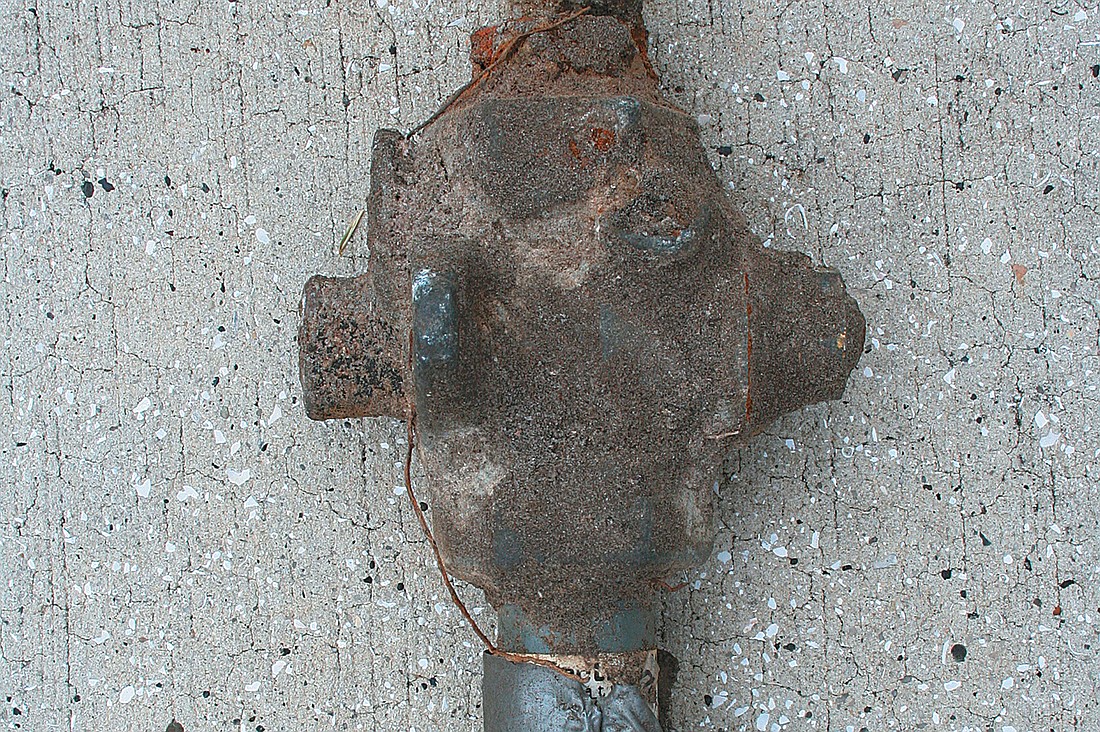- April 25, 2024
-
-
Loading

Loading

It took two years and approximately $15,000 of his own money, but a Palmer Ranch homeowner won a Sarasota County Circuit Court lawsuit against his homeowners association in September.
In September 2009, more than two-dozen homeowners in The Hamptons were threatened with a lawsuit and a possible lien on their homes if they went forward with switching the energy source for their front-yard street lamps.
Each home in The Hamptons has a gas-powered lamp that burns 24 hours a day. Four residents, though, in September 2009, converted from gas to electric, and 24 others were planning to convert as well, after the homeowners association’s own Architectural Control Committee (ACC) approved the conversions in July and August 2009.
The reasons they cited for wanting to convert had to do with cost savings and safety. The Hamptons Homeowners Association had budgeted more than $109,000 in 2009 to pay for natural gas to power the front-yard lamps, some streetlights and pool-area lights. At the time, the cost was about $400 per year for each of the community’s 254 homes. Powering the lights with electricity costs about $30 per year per home, according to one homeowner who converted.
The Hamptons’ Homeowners Association, though, considered suing the homeowners who had plans to switch power sources.
Some residents in The Hamptons objected to the ACC’s approval of the lamp conversions, and they asked for a recall election to oust the board members who voted to allow the homeowners to change their lamps.
The community’s bylaws, though, don’t outlaw a change in light source. In fact, several homeowners cling to another part of the bylaws that states homeowners “shall maintain their yards and adjoining property to the edge of adjoining roadway.”
The homeowners believe that because the lights are within their yards, they can do with them whatever they please.
Fed up with what he called “fear tactics,” Hamptons resident Lenny Dura and two other residents filed a lawsuit against their association in December 2009.
The court ruled in favor of Dura in September, and he’s waiting to hear what his summary judgment will be to help pay for his attorney’s fees and costs. Dura was already awarded $675 for natural gas that his lamp never used because it’s now electric and hooked up to his electric meter.
During the course of the last two years, the other neighbors involved in the case with him dropped out, after Dura explained they felt further intimidated and were worried about rising court fees.
Dura said he realizes he can never recoup all of the money he spent but explained it was a matter of principle and a willingness not to stand down to a board that he says was in the wrong from day one.
Dura also has incident reports and pictures of fires that have occurred in the neighborhood as a result of the gas lamps, which run 24 hours a day.
Dura now pays $30 per year for the electric light, while neighbors with gas lamps pay approximately $62 quarterly for gas.
Further upsetting Dura, is the fact that the association spent at least $14,000 of association money to fight him, noting that his own dues money was used to help fight the lawsuit he filed against the board.
“I love this neighborhood and we have a lot of friends in here,” Dura said. “But I hope the board in the future has more compassion for people and the issues in this neighborhood.”
Kamel Zaki, a resident of The Hamptons since 2003, said he’s disgusted to hear what Dura went through.
“To put him through $15,000 and two years of hell, plus using $15,000 of our association money to fight this is pure vindictiveness,” Zaki said.
While the lawsuit ruling was only in favor of Dura, Zaki is hopeful the association will now allow other residents to convert their lampposts, but he doubts the actions of the board will change.
“Their actions say they will continue to act in a way that’s not in accordance with their documents,” Zaki said.
Zaki said if the association resists his plan to convert his lamp, he’s considering suing the association and getting other owners to join in the lawsuit.
“For me, it’s a question of ownership rights,” Zaki said. “I will respect our covenants and documents, but I expect my neighbors to respect my rights as well for a light that’s in my yard and that I believe is unsafe.”